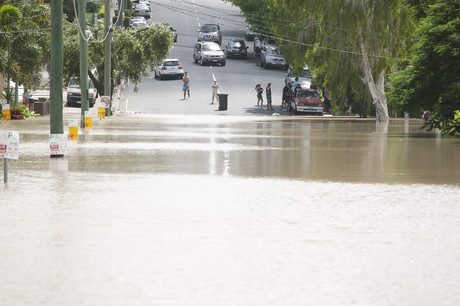Call for Brisbane to improve resiliency

Brisbane risks falling further behind domestic and global cities if it doesn’t address key resilience concerns, according to a report from design and consultancy firm Arcadis.
‘City Resiliency: More than just a disaster’ outlines key resilience areas that Brisbane must address and proposes solutions, including a call to protect Brisbane’s CBD from flood and stormwater events with a levee system. The three resilience concerns raised in the report are:
- Storm and flood events — their regular and significant impact on the Brisbane CBD.
- Urban energy and the embedded network system — the consumer traps that are going unnoticed in new residential developments
- Automation of Brisbane — how to begin to create a leading smart city.
“While Brisbane is the lifestyle capital of Australia, it can never become an economic capital until it confronts some simple truths and reinforces its resilience,” Arcadis City Executive South East Queensland Dr Louisa Carter said.
“One of the biggest international spotlights Brisbane had recently was when its CBD flooded. This just can’t continue if we want to become a New World City.”
The report suggests that flood mitigation in the form of a levee from Boundary Street to the Eagle Street precinct could be suitable for the city. Even though this will value market infrastructure in the CBD more highly than other surrounding localities, the report states that this is the most crucial area to address first. Impacts and evacuations may result, but with advanced analytics (measurable and monitored) the levee can be scoped and delivered over time with upfront and real-time information available to the community.
“Beyond the natural stresses Brisbane faces with storm events, we also have a concerning trend of embedded energy and data networks in new inner urban developments,” Dr Carter added. “These introduce a third-party control in our otherwise deregulated supply market, introducing consumer risks in pricing and service.
“In addition to the energy and data challenges of our cities, we are also at risk of falling behind comparable global cities if we don’t fully capture the opportunities provided by the increasing automation of our cities.
“Right now, we have profound new capabilities in urban analytics that can assist in evaluating the immediate opportunities for improved resilience in our cities and within our populations. We should apply these new capabilities to our strategic thinking — like a fast-forward button to the future that we want.”
Berrima Cement Works upgrades with sustainable tech
Boral has unveiled new carbon-reducing technology at the site, which supplies 40% of cement in...
Australian orgs partner to speed circular economy
GS1 Australia has joined forces with the Product Stewardship Centre of Excellence to drive the...
Victorian utility recognised at Asian Water Awards
South East Water won two awards for its Hydrotrak Geofencing technology, which has helped it to...









